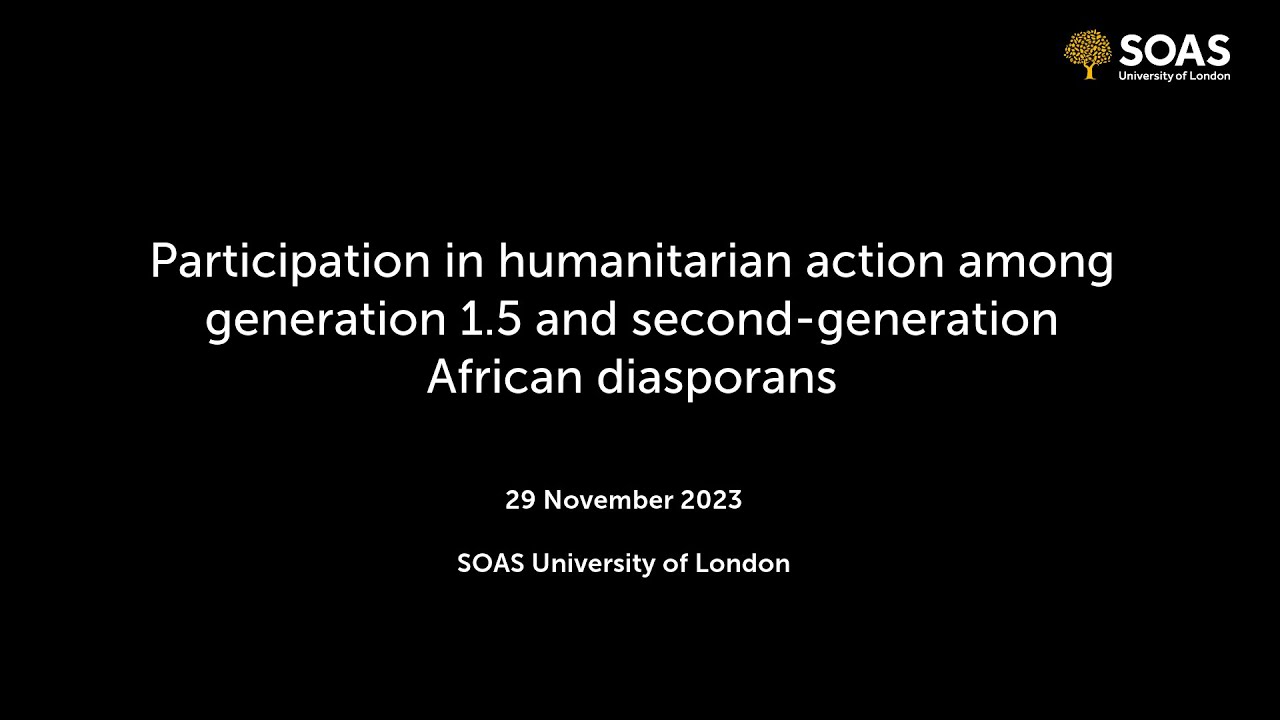Participation in humanitarian action among generation 1.5 and second-generation African diasporans

Key information
- Date
- Time
-
6:00 pm to 7:30 pm
- Venue
- Virtual on Zoom
- Event type
- Virtual/online
About this event
The Centre for Pan-African Studies in partnership with Shabaka, invites you to a panel discussion on the role of generation 1.5 and second-generation diasporan in the facilitation and provision of humanitarian response during crisis.
Second-generation African diasporans in the UK represent a significant and rapidly growing demographic. They serve as essential links, connecting the UK to various African countries and identities, and contributing to the cultural, economic, and political enrichment of communities across borders. They are vocal advocates for global justice and humanitarian values. Yet, the role of second-generation diasporans in the UK and Africa, especially in humanitarian response, is often overlooked in academic discussions, the development sector, and media coverage. This webinar seeks to discuss this oversight by delving into the critical role played by generation 1.5 and second-generation African diaspora in humanitarian action. We aim to identify and explore the knowledge gaps surrounding their engagement and discuss the factors that either facilitate or hinder their contributions, both in the UK and on the continent. The webinar aims to initiate an open dialogue and foster a deeper understanding of the untapped potential of second-generation diasporans among academic, policymakers, development practitioners and diasporans in humanitarian initiatives.
The webinar brings together generation 1.5 and second-generation researchers and practitioners with extensive experience in the field. It will aim to explore the following questions:
-
What are diaspora communities in the UK currently doing to support those experiencing the crisis in their countries of origin? What has the second-generation response been?
-
What are the motivations for second-generation Africans supporting humanitarian action in their countries of origin/on the African continent?
-
What are the misconceptions about second-generation Africans and their engagement in humanitarian action?
-
What are the similarities and differences in how first and second-generation Africans engage in humanitarian action?
About the speakers
Bashàïr Ahmed (PhD) is the CEO of Shabaka. She has over 20 years of experience working with United Nations agencies and international organisations focusing on fragile and conflict-affected countries. Bashair holds a PhD in migration studies from the University of Sussex.
Sarah Marwan is an MA in diplomacy and International Relations student at SOAS University. She recently completed her BA in Politics and International Relations and her dissertation focused on ideas around national identity within Libya and its diaspora in the UK. Most recently she has been involved with fundraising activities to support the humanitarian response towards the Derna flood in Libya
Sahra Ahmed Koshin is the director of the Somali Gender Hub and a PhD Candidate at the University of Copenhagen and the University of Nairobi, specializing in the Horn of Africa Diaspora. Her current research focuses on Gender and Somali Diaspora Humanitarianism in Complex Crises. Within this research, Sahra delves into the pivotal role that diaspora women play in humanitarian efforts, with particular attention to the experiences of Somali businesswomen and female refugees in Zambia, serving as compelling case studies.
The event will be co-chaired by Dr Mikal Woldu (CPAS) and Dr Kirstie Kwarteng (Shabaka)



